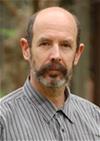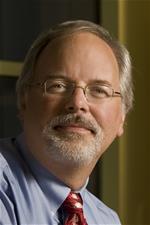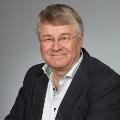Keynote and Tutorial Speakers
The EURO2015 Committee are delighted to announce the following Keynote and Tutorial Speakers for this year's conference:

Ariela Sofer
Keynote Speaker
Systems Engineering and Operations Research (SEOR), George Mason University, Virginia
Title: "OR Education in the Age of Analytics"
OR Education in the Age of Analytics
With the explosion of data in the past few years, many universities have raced to establish new graduate programs in data analytics, or big data. Such programs are often interdisciplinary, drawing from disparate faculty from statistics, computer science, business, and of course, operations research. At the same time traditional masters programs in OR have not (for the most part) rushed to revise their core curriculum in response to the rapid growth in data. It is our contention that every OR graduate going into the workplace today must have a broad comprehension of how large quantities of data can be transformed to information and in turn to informed decisions. How can we change the OR core to accommodate this need while still maintaining an “OR-centric” curriculum? This presentation will examine the challenges and offer some possible approaches.
Biography
Ariela Sofer is Professor and Chair of the Systems Engineering and Operations Research (SEOR) Department at George Mason University. Her major areas of interest are nonlinear programming, numerical optimization, and optimization in medical application. She is coauthor of the book Linear and Nonlinear Optimization, McGraw Hill 1996, and SIAM Books, 2008. Dr. Sofer is currently secretary of the Board of Trustees of IIE. She has served as VP for Sections and Societies of INFORMS, and as President of the Association of Chairs of OR Departments. She has also served as Chair of the INFORMS Computing Society and as Secretary/ Treasurer of the SIAM SIG on Optimization. She has served as Associate Editor of the journals Operations Research and Management Science, and on the editorial Board of MOS-SIAM Book Series on Optimization. She was co-chair of the 2002 SIAM Conference on Optimization and the 3rd International Conference on Model-Based Systems Engineering, 2010.

Eva K. Lee
Keynote Speaker
Center for Operations Research in Medicine and HealthCare, Georgia Institute of Technology, Atlanta
Title: "Optimizing and Transforming the Healthcare System"
Optimizing and Transforming the Healthcare System
Risk and decision models and predictive analytics have long been cornerstones for advancement of business analytics in industrial, government, and military applications. They are also playing key roles in advancing and transforming the healthcare delivery system. In particular, multi-source data system modeling and big data analytics and technologies play an increasingly important role in modern healthcare enterprise. Many problems can be formulated into mathematical models and can be analyzed using sophisticated optimization, decision analysis, and computational techniques. In this talk, we will share some of our successes in early disease diagnosis, treatment planning design, and healthcare operations through innovation in decision and predictive big data analytics.
Biography
Dr. Lee is a Professor in the H. Milton Stewart School of Industrial and Systems Engineering at Georgia Institute of Technology, and Director of the Center for Operations Research in Medicine and HealthCare, a center established through funds from the National Science Foundation and the Whitaker Foundation. The center focuses on biomedicine, public health, and defense, advancing domains from basic science to translational medical research; intelligent, quality, and cost-effective delivery; and medical preparedness and protection of critical infrastructures. She is a Distinguished Scholar in Health Systems, Health System Institute at Georgia Tech and Emory University. She is also the Co-Director of the Center for Health Organization Transformation, an NSF Industry/University Cooperative Research Center. Lee partners with hospital leaders to develop novel transformational strategies in delivery, quality, safety, operations efficiency, information management, change management and organizational learning. Lee graduated from Rice University with a degree in Computational and Applied Mathematics, and received NSF/NATO postdoctoral training in scientific computing. Her research focuses on mathematical programming, information technology, and computational algorithms for risk assessment, decision making, predictive analytics, knowledge discovery, and systems optimization. She has made major contributions in advances to medical care and procedures, systems bioinformatics, emergency response and medical preparedness, healthcare operations, and business transformation. A brief glimpse of Dr. Lee’s healthcare work can be found in the following link:
http://www2.isye.gatech.edu/~evakylee/Eva_Lee_Intl_Innovation_139_Research_Media_HR.pdf
- by Sophie Laggan, International Innovation, May 2014.

Horst Hamacher
Keynote Speaker
Optimization Working Group, Department of Mathematics, University of Kaiserslautern, Germany
Title: "Operations Research Models in Evacuation Planning"
Operations Research Models in Evacuation Planning
Due to the variety of problems which need to be tackled, evacuation planning is an excellent field for the development of theory and implementations of Operations Research (OR) models. In this presentation we will present several types of evacuation problems, show the interplay between various OR disciplines and focus on some specific optimization techniques which have been developed in the past years to model evacuation problems as accurately as possible.
Biography
Prof. Dr. Horst W. Hamacher received his diploma and PhD in Mathematics and Management Science from the University of Köln, Germany, in 1977 and 1980, respectively. Between 1980 and 1988 he was Assistant/Associate Professor at the University of Florida, USA, and founder and director of the Center for Optimization and Combinatorics (COCO). In 1987 he accepted a professorship at the Department of Mathematics at the University of Kaiserslautern, Germany, where he currently holds a chair in Econo and School Mathematics. Between 1994 and 1997 he was Vice-President of this university. Between 2005 and 2010 he was member of the board of the German Operations Research Society (GOR) – in the last two years as its president. His main interest is in the modelling of problems in industry and society using mathematical optimization, and he published 20 books and more than 100 papers in international research journals. For his models on cancer radiation planning he received in 2004 the inaugural Julius-von-Haast award of the New Zealand Department of Research and an Honorary Professorship of the University of Auckland. His work has been and is funded by numerous research grants and he is coordinator and project head of several civil security BMBF projects, e.g. "Regional Evacuation: Planning, Control and Adaptation (REPKA), 2009-2012", "Decision Support System for Large Scale Evacuation Logistics (DSS_Evac_Logistic), 2012-15", "Location and Layout Algorithms in Public Events (StanLay), 2013-16", and "Robust Evacuation and Civil Security Planning (RobEZiS), 2014-17".

Jacek Blazewicz
Tutorial Speaker
Institute of Computing Science, Poznan University of Technology, Poland
Title: "OR models and algorithms for Bioinformatics"
OR models and algorithms for Bioinformatics
In the talk we will present the operational research models and approaches to the solution of the prominent problems in Bioinformatics. A special attention will be paid to the DNA and RNA chain reading problems. First, the DNA sequencing problem will be analyzed. Based on it, the algorithms solving the DNA assembling problem, involving 454 sequencers, will be characterized. An impact of this approach on the graph theory itself will be also presented. Later, the problem of a prediction of tertiary structures of RNA will be described. We will present its complicated nature and a set of computational procedures leading to its solution. The impact of the above problems on solving health issues of the current human population will be also discussed.
Biography
Professor and a vice-director (since 1987) of the Institute of Computing Science of Poznan University of Technology. He is also a professor at the Institute of Bioorganic Chemistry of PAS. Member of the Polish Academy of Sciences (since 2002). Member of the Polish Informatics Society and Founding Member of the Polish Bioinformatics Society ; Member of the Scientific Councils of IPI PAS and IChB PAS. He is also a Vice-President IFORS for EURO; a Honorary Coordinator of the Computational Biology, Bioinformatics and Medicine WG of EURO - since 2007 and a Member of the EPSRC Peer Review College. Since 1997 he is an editor of the series International Handbooks on Information Systems at Springer and a member of editorial boards of 10 international journals (Parallel Computing, Journal of Heuristics, Journal of Scheduling and RAIRO among others). Co-chairman of 35 international conferences (among others: Dagstuhl Symposium on Scheduling - 1995, 1997, 1999, 2002, 2004; Symposium on Parallel & Distributed Processing - Aussois - 1998, 2014; Marseille - 2001, 2008; Hangzhou - 2011; Frejus - 2013, EURO WG Conference on Computational Biology, Bioinformatics and Medicine Rome - 2008; Nottingham - 2012, Biedrusko - 2014). In the area of computer science and bioinformatics he published over 350 papers and books. His total citation number is over 3500 and h_index= 27 (according to ISI Citation Search). He was awarded EURO Gold Medal (1991). He is also a recipient of the State Award, 8 awards of the Ministry of Science and Higher Education as well as the award of Division IV of PAS. In 2012 he was elevated to the position of IEEE Fellow, while in 2006 he was awarded a Dr.H.C. degree from the University of Siegen. In 2012 a Copernicus Prize was bestowed upon him.
http://www.cs.put.poznan.pl/jblazewicz/

Martin Savelsbergh
Tutorial Speaker
H. Milton Stewart School of Industrial and Systems Engineering, Georgia Institute of Technology, Atlanta
Title: "Advances in Criterion Space Search Methods for Multiobjective Mixed Integer Programming"
Advances in Criterion Space Search Methods for Multiobjective Mixed Integer Programming
Many real world-problems involve multiple objectives. Due to conflict between objectives, finding a feasible solution that simultaneously optimizes all objectives is usually impossible. Consequently, in practice, decision makers want to understand the trade-off between objectives before choosing a suitable solution. Thus, generating many or all efficient solutions, i.e., solutions in which it is impossible to improve the value of one objective without a deterioration in the value of at least one other objective, is the primary goal in multiobjective optimization. Recently, a number of studies have shown that solving instances of multiobjective integer programs with two and three objectives of reasonable size is now within the realm of possibilities. Furthermore, some of these algorithms, e.g., the rectangle splitting method and the L-shape method, can produce high-quality approximate efficient frontiers quickly. We will present an overview of algorithms for solving multiobjective integer programs with a focus on criterion space search methods.
Biography
Martin Savelsbergh is James C. Edenfield Chair and Professor at the H. Milton Stewart School of Industrial & Systems Engineering. Martin is an optimization and logistics specialist with over 20 years of experience in mathematical modeling, operations research, optimization methods, algorithm design, performance analysis, logistics, supply chain management, and transportation systems. He has published over 130 research papers in many of the top optimization and logistics journals and has supervised more than 20 Ph.D. students. Martin has a track record of creating innovative techniques for solving large-scale optimization problems in a variety of areas, ranging from supply chain master planning and execution, to world-wide tank container management, to service network design, to production planning, and to vehicle routing and scheduling. Martin has given presentations and short courses on optimization, transportation, and logistics in more than a dozen countries around the world. Ongoing research projects that Martin is pursuing include innovations in last-mile delivery, advances in dynamic ride-sharing, methods for multiobjective optimization, and dynamic management of time-expanded networks. Martin is Editor-in-Chief of Transportation Science, the flagship journal of INFORMS in the area of transportation and logistics.

Michael Trick
Keynote Speaker
Carnegie Mellon University
Title: Business Analytics: Combining Predictive and Prescriptive Analytics to Have Broad Impact
Business Analytics: Combining Predictive and Prescriptive Analytics to Have Broad Impact
Operational Research has had tremendous impact on companies and organizations over its 70+ year history. Recent advances in algorithms, computing, and data capture have created an environment where our field can be even more influential. By combining predictive analytics, such as data mining and statistical approaches, with prescriptive analytics, such as optimization methods, our field can create systems that span multiple functions within an organization. I will discuss the key trends that are affecting the world of operational research, and illustrate the impact of those trends in my own work in sports scheduling and other application areas.
Biography
Michael Trick is the James H. and Harry B. Higgins Professor of Operations Research at the Tepper School of Business, Carnegie Mellon University (USA) and is the Senior Associate Dean, Faculty and Research at that school. He received his PhD in Industrial and Systems Engineering from the Georgia Institute of Technology in 1987 and has postdocs or visiting positions at the University of Bonn, Rutgers University, MIT, and the University of Auckland. He was President of the Institute for Operations Research and the Management Sciences (INFORMS) in 2002 and is the president-designate for the International Federation of Operational Research Societies (IFORS), with a term beginning in 2016. He has consulted extensively on issues in machine scheduling, logistics, and sports scheduling. His research is in integer programming, constraint programming and computational social choice.

Raimo P. Hämäläinen
Keynote Speaker
Systems Analysis Laboratory, Aalto University, Finland
Title: "Behavioural Operational Research"
Behavioural Operational Research
In this talk I will discuss the need for and recent developments in the emerging research area of Behavioral Operational Research (BOR). The goal of OR is to facilitate thinking and problem solving . How OR processes achieve this is one avenue of inquiry in BOR. What kinds of behavioral biases do OR methods themselves cause or solve is another. Behavioral issues are always present when supporting human problem solving by modeling. Behavioral effects can relate to the group interaction and communication when facilitating with OR models as well as to the possibility of procedural mistakes, cognitive biases and even to motivational issues. The research in BOR ranges from studies on how behaviour is captured in OR models to how to identify and avoid undesirable behavior effects. In this talk I will review themes and methods studied recently in this area. Although behavioural issues have been acknowledged by particular OR communities (e.g. decision analysis, system dynamics, game theory), much more behavioural studies are needed across the full spectrum of OR specialisms. We need to pay attention to behavioral issues as models are being increasingly used in addressing important problems like the climate change.
Biography
Professor Raimo P. Hämäläinen is Director and founder of the Systems Analysis Laboratory in the Aalto University, Finland. He is the author of over 200 publications on decision analysis, game theory, energy policy and environmental decision making, systems intelligence and biological systems. He is also the designer of widely used decision analysis software including the web-HIPRE. As a consultant he has helped to solve problems especially in the areas of environmental policy and risk analysis. He has pioneered in the emerging field of Behavioral Operations Research which has attracted very strong interest in the OR community.. Professor Raimo P. Hämäläinen was nominated the Honorary President of the Finnish Operational Research Society for his contributions in developing the field in Finland. He is also the recipient of the International Society on Multiple Criteria Decision Making the MCDM Edgeworth-Pareto Award.
Personal web-page: http://sal.aalto.fi/raimo

Stefan Nickel
Keynote Speaker
Institute for Operations Research, Karlsruhe Institute of Technology (KIT), Germany
Title: "Is Optimal Still Good Enough? - Modern Supply Chain Planning"
Is Optimal Still Good Enough? - Modern Supply Chain Planning
Supply Chain Management (SCM) is the process of planning, implementing and controlling the operations of a supply chain in an efficient way.
Supply Chain Planning – as an important subtask of SCM – is the process of allocating resources over a network of interrelated locations with the goal to satisfy customer requirements (service level, demand, …). It spans all movements and storage of raw materials, work-in-process inventory, and finished goods from the point-of-origin to the point-of-consumption. Operations Researchers support Supply Chain Planning by developing adequate mathematical optimization models and providing suitable solution procedures. In this talk we discuss what adequate could mean.
Especially global supply chains have to face a rich variety of potential risks. Major incidents commonly referred to as disruptions such as strikes, natural disasters or political changes are widely known, but solely discussed on a conceptual and empirical basis. Permanently evolving market conditions such as up-and-down movements in oil prices or volatile exchange rates challenge the efficient execution of supply chains. Therefore, we may ask several questions concerning "optimality" in Supply Chain Planning under causal and temporal uncertainty: What is an optimal solution? When is it optimal? For how long is it optimal? How should the design of a supply chain be changed when conditions and requirements ask for new structures?
In this talk, we discuss new approaches to Supply Chain Planning in order to give an optimal transformation from an initial solution over multiple periods to a desired one rather than just specifying an optimal snapshot solution. Related to this idea, we re-coin the concept of risk in the realm of Supply Chain Planning. Here the question is how to measure supply chain specific risks and how to incorporate them into mathematical models. Finally, we have a look at the impact of recent technological developments like the Internet of Things or Industry 4.0 on supply chains, and we show how Online Optimization can help to cope with real-time challenges in Supply Chain Planning.
Biography
Stefan Nickel is a full professor at the Karlsruhe Institute of Technology - KIT (Germany) and one of the directors of the Institute of Operations Research. He obtained his PhD in mathematics at the Technical University of Kaiserslautern (Germany) in 1995. From 1995 to 2003 he was assistant and associate professor in mathematics at the Technical University of Kaiserslautern. After a full professor position at the Saarland University (Chair of Operations Research and Logistics) from 2003 to 2009, he joined the Karlsruhe Institute of Technology as the Chair in Discrete Optimization and Logistics in April 2009. Since 2014 he is the dean of the Department of Economics and Management at KIT. Stefan Nickel is also member of the scientific advisory board as well as of the management board of the Fraunhofer Institute for Applied Mathematics (ITWM) in Kaiserslautern. Since 2011 he additionally holds the positions of one of the directors of the Karlsruhe Service Research Institute (KSRI) and of the Research Center for Computer Science (FZI). Since 2006 he is editor-in-chief of Computers & Operations Research and member of the editorial board of Health Care Management Science. He has coordinated the Health Care working group within the German OR society (GOR) and has been the president of GOR from 2013-2014. Stefan Nickel has authored or co-authored 5 books as well as more than 90 scientific articles in his research areas Locational Analysis, Supply Chain Management, Health Care Logistics, and Online Optimization. He has been awarded the EURO prize for the best EJOR review paper (2012) and the Elsevier prize for the EJOR top cited article 2007-2011. In addition he conducted several industry projects with well-known companies such as BASF, Lufthansa, Miele, or SAP.

Thomas Stuetzle
Tutorial Speaker
IRIDIA, Université Libre de Bruxelles, Belgium
Title: "Automatic Algorithm Configuration: Advances and Perspectives"
Automatic Algorithm Configuration: Advances and Perspectives
The design of optimisation algorithms for computationally hard problems is time-consuming and difficult. This is in large part due to a number of aggravating circumstances such as the NP-hardness of most of the problems to be solved, the difficulty of algorithm analysis due to stochasticity and heuristic biases, and the large number of degrees of freedom in defining and selecting algorithmic components and settings of numerical parameters. Even when using off-the-shelf software such as high performing IP solvers, their performance strongly depends on the appropriate settings of a large number of parameters that can influence their search behaviour. Over the recent years, automatic algorithm configuration methods have been developed to effectively search large parameter configuration spaces for identifying superior algorithm designs and performance improving parameter settings. These methods have by now proved to be instrumental for developing high-performance algorithms. In this talk, we will argue about the advantages of addressing algorithm design and configuration by algorithmic techniques; describe the main existing automatic algorithm configuration techniques; and discuss various successful applications of automatic algorithm configuration to configure mixed-integer programming solvers, the generation of hybrid stochastic local search algorithms, the design of multi-objective optimisers, and the improvement of algorithm anytime behaviour. Finally, we will argue that automatic algorithm configuration will transform the way optimisation algorithms are designed and developed in the future.
Biography
Dr. Stützle is a senior research associate of the Belgian F.R.S.-FNRS working at the IRIDIA laboratory of Université libre de Bruxelles (ULB), Belgium. He received the Diplom (German equivalent of M.S. degree) in business engineering from the Universität Karlsruhe (TH), Karlsruhe, Germany in 1994, and his PhD and his habilitation in computer science both from the Computer Science Department of Technische Universität Darmstadt, Germany in 1998 and 2004, respectively. He is the co-author of two books about ''Stochastic Local Search: Foundations and Applications'' and ''Ant Colony Optimization'' and he has extensively published in the wider area of metaheuristics including 20 edited proceedings or books, 8 journal special issues, and more than 200 journal, conference articles and book chapters, many of which are highly cited. He is associate editor of Computational Intelligence, Swarm Intelligence, and Applied Mathematics and Computation and on the editorial board of six other journals. His main research interests are in metaheuristics, swarm intelligence, methodologies for engineering stochastic local search algorithms, multi-objective optimization, and automatic algorithm configuration.
http://iridia.ulb.ac.be/~stuetzle/

Tony O'Connor
Keynote Speaker
Chair of the Government Operational Research Service (GORS), UK
Title: "OR at the heart of Government - how the Government OR Service influences decision making"
OR at the heart of Government - how the Government OR Service influences decision making
In the UK Government the use of analysis and evidence is well established and Operational Research plays an important role alongside the more traditional analytical disciplines of Economics, Statistics and Social Research. This key note address will set out the context in which the Government Operational Research Service (GORS) operates, our role in different departments, showcase some successes and discuss some of the challenges we face. How do we work with ministers? How do we shape their policies and improve the delivery of public services?
It will draw upon personal experiences from various Government departments (including my time as the Chief Analyst to the Prime Minister's Delivery Unit). In addition it will showcase examples from other departments where OR has shaped the decision making of public services both in terms of policy design and operational delivery.
Biography
Tony has nearly 30 years’ experience of Operational Research in UK Government across Education, Cabinet Office, HM Treasury and since 2009 in the Department of Health’s Strategy Group.
2001-2008 he was the Chief Analyst of the Prime Minister’s Delivery Unit (2001-2008) where he improved the use of evidence at the heart of Government, working in particular on performance measurement across key public services reporting to the then Prime Minister Tony Blair and then Gordon Brown. More recently he has been working on various cross cutting and longer term challenges for the UK health and care sector and is leading a project in DH on the potential of big data and data analytics for DH and across government.
Since April 2004 he has been the Head of the Government OR Service (GORS) representing the interests of all 550 Government OR analysts.
In 2007 he was awarded the CBE for his work promoting Operational Research across Government. In 2010 he was made an OR Companion of Honour by the OR Society.

Markku Markkula
Keynote Speaker
President of the EU Committee of the Regions
Title: "Regional Innovation ecosystems pioneering the Europe 2020 development - integrating top-down and bottom-up”
The main target of the presentation is to challenge the academic OR researchers to deepen their systems thinking on the on-going societal transformation, which is often called the paradigm shift to digitalized knowledge economy. The presentation will include theories and practices of the latest EU policy guidelines, i.e. regional smart specialisation strategies, knowledge triangle, and the need to renew the triple helix concept to quadruple helix and to innovation ecosystems.
The future EU Urban Agenda can defined in a new way: The future smart cities function as mutually complementary ecosystems, where different actor groups and actors collaborate to discover the optimal balance in 1) urban economic activities, 2) comfortable, invigorating and human-scale living environments, and 3) synergistic innovation processes for continuous renewal.
This means that future urban ecosystems can be seen in a much broader context than before: as orchestrated platforms for testing emerging concepts and technological solutions for a sustainable tomorrow. Furthermore, Europe needs to investigate how to turn the accumulating know-how into competitive and successful business models, processes and operations.
Biography
Markku Markkula started his two and a half year mandate as the President of the European Committee of the Regions (CoR) in February 2015. He became member of the CoR in 2010 and has held a number of positions in the institution including the 1st Vice-Chair of the EPP Group and Chair of EPP Group's Task Force on Europe 2020. He also authored a number of opinions including “A Digital Agenda for Europe”, “Horizon 2020”, “Closing the Innovation Divide” and “Industrial Policy Package”.
Mr Markkula works at Aalto University as the Advisor to Aalto Presidents, with the focus on EU research, innovation and education policy.
Mr Markkula is a former member of the Finnish Parliament (1995-2003). As an MP his international role included the Presidency of EPTA Council, European Parliamentary Technology Assessment Network. As a tribute to his achievements in the field of education policy, he was elected to the International Adult and Continuing Education Hall of Fame in 2008.